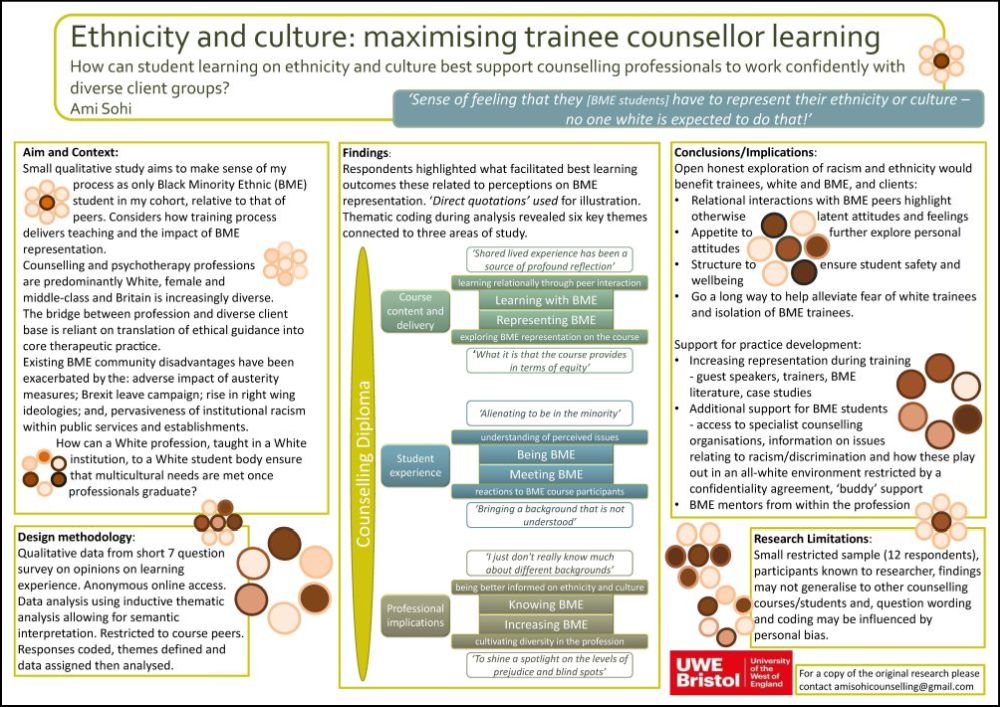
Aims or purpose
The counselling and psychotherapy professions are characterised as predominantly white, female and middle-class. Britain is becoming increasingly ethnically diverse. The bridge between the profession and the diverse client base is reliant on consistent translation of ethical guidance into core therapeutic practice. The focus of this research is to explore counsellor learning on ethnicity and culture during training and also consider BME representation.
Design and methodology
Qualitative data gathered from short survey focussing on opinions on learning experience. Access was online and anonymous. Data was analysed using inductive thematic analysis allowing for semantic interpretation. Participation restricted to fellow students on the course.
Results and findings
Data revealed six key themes of relevance to learning about ethnicity and culture. These related strongly to personal perspectives of BME representation in both training and the wider profession. The themes in turn linked to three study areas; student experience, course content and delivery and professional and practice implications.
The themes are:
- Student experience: Being BME – understanding perceived issues
- Meeting BME – reacting to BME course participants
- Course content and delivery: Learning with BME – learning relationally through peer interaction
- Representing BME – exploring BME representation on the course
- Professional and practice implications: Knowing BME – being better informed on ethnicity and culture
- Increasing BME – cultivating diversity in the profession
Research limitations
Small restricted sample (12 respondents), participants known to the researcher, findings may not generalise to other counselling courses/students, question wording and coding may be influenced by personal bias.
Conclusions and implications
The findings suggest an appetite to further explore personal attitudes in relation to ethnicity and culture when discussion arises. More open and honest exploration of racism and ethnicity would be of benefit to trainees, white and BME, and clients we work with. However, in order for this to happen there would need to be structures in place to ensure safety and wellbeing of students. If done sensitively this would go a long way to alleviating the fear of white trainees and the isolation of BME trainees. The findings could also have implications for practice development through influencing the delivery of counselling training; particularly in relation to increasing representation (guest speakers, trainers, BME literature and case studies).
Views expressed in this article are the views of the writer and not necessarily the views of BACP. Publication does not imply endorsement of the writer’s views. Reasonable care has been taken to avoid errors but no liability will be accepted for any errors that may occur.
